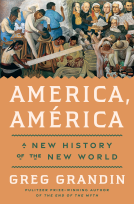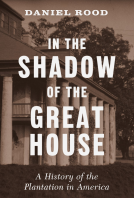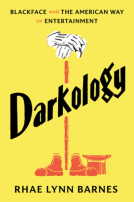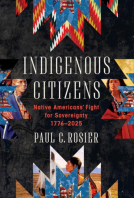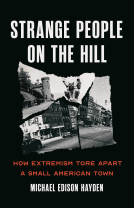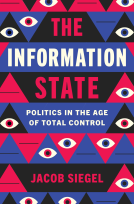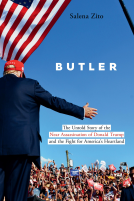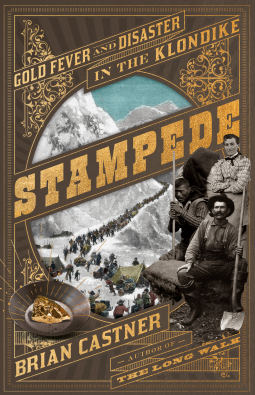
Stampede
Gold Fever and Disaster in the Klondike
by Brian Castner
This title was previously available on NetGalley and is now archived.
Send NetGalley books directly to your Kindle or Kindle app
1
To read on a Kindle or Kindle app, please add kindle@netgalley.com as an approved email address to receive files in your Amazon account. Click here for step-by-step instructions.
2
Also find your Kindle email address within your Amazon account, and enter it here.
Pub Date Apr 13 2021 | Archive Date Apr 27 2021
Doubleday Books | Doubleday
Talking about this book? Use #Stampede #NetGalley. More hashtag tips!
Description
In 1897, the United States was mired in the worst economic depression that the country had yet endured. So when all the newspapers announced gold was to be found in wildly enriching quantities at the Klondike River region of the Yukon, a mob of economically desperate Americans swarmed north. Within weeks tens of thousands of them were embarking from western ports to throw themselves at some of the harshest terrain on the planet--in winter yet--woefully unprepared, with no experience at all in mining or mountaineering. It was a mass delusion that quickly proved deadly: avalanches, shipwrecks, starvation, murder.
Upon this stage, author Brian Castner tells a relentlessly driving story of the gold rush through the individual experiences of the iconic characters who endured it. A young Jack London, who would make his fortune but not in gold. Colonel Samuel Steele, who tried to save the stampeders from themselves. The notorious gangster Soapy Smith, goodtime girls and desperate miners, Skookum Jim, and the hotel entrepreneur Belinda Mulrooney. The unvarnished tale of this mass migration is always striking, revealing the amazing truth of what people will do for a chance to be rich.
Available Editions
| EDITION | Other Format |
| ISBN | 9780385544504 |
| PRICE | $28.95 (USD) |
| PAGES | 288 |
Average rating from 9 members
Featured Reviews
This book is one of the few books that I have found accessible and engaging concerning the Gold Rush. While it shouldn't be taken as the last book on the subject, it is definitely a good place to begin. Castner's descriptions of characters and the stories he tells of them in the Klondike bring a story that may garner a few mentions in history class more of their due. This is the real Mountain Men, much more rough and trying. Many of these stories I had never heard of, aside from Jack London, and even then, I learned a great deal more about him.
What impressed me is not just what is included, but Castner's prose really pulled me in. I read a lot of nonfiction, some rather dry, but here is a book that I think could easily bridge the gap between popular nonfiction and academic insightfulness.
 steven s, Reviewer
steven s, Reviewer
A brilliant telling of the great gold rush in Alaska. All the major characters are fleshed out and made all too human. This is a riveting retelling of the events of that era. Well done on all counts.
 Bookseller 749797
Bookseller 749797
Best book I have read on the history of the Gold Rush in the Yukon! The bulk of the story is based on the human aspect of that era. Many lives were impacted by this drive for wealth and adventure in this gold “stampede”.
 zeb k, Reviewer
zeb k, Reviewer
In 1896 there were two gold finds in the Yukon Territory of North West Canada. One was sizable and almost equivalent to the find at Sutter's Creek in California. For most prospectors, a creek that would yield more than ten cents a pan would be consider a great "strike". But not too far from the first strike another was found on the "Klondike" creek. This one yielded pans of up to $5.00 and averaged over $1.50.
During the time that over 100,000 stampeders overwhelmed the area, Dawson and Skagway were the two most popular destinations in the world. During the three years it took to dig out most of the gold out, 20,000,000 ounces, about $34 billion in today's was extracted. The price of gold in 1900 was higher (when adjusted for inflation) than in 2000. Most of the gold was extracted by panning the rivers and melting areas of perma-frost to follow the gold veins.
Of the 100k of people who set out from Seattle and points in Canada, half never made it to the area of the Yukon that led to the two passes that went into the Klondike. Half of those never made it over the passes, and fewer than 10k ever made it to the Goldfields. Of the few dozen millionaires most never made enough money to pay for a ticket home, and many ended up working for those who controlled the thousand best claims.
The moral of the story is that unlike oil, once the original strike is publicized, it's too late to go.
Readers who liked this book also liked:
Peter J. Verovšek
Biographies & Memoirs, Nonfiction (Adult), Politics & Current Affairs
Kim Michele Richardson
General Fiction (Adult), Historical Fiction, Women's Fiction

